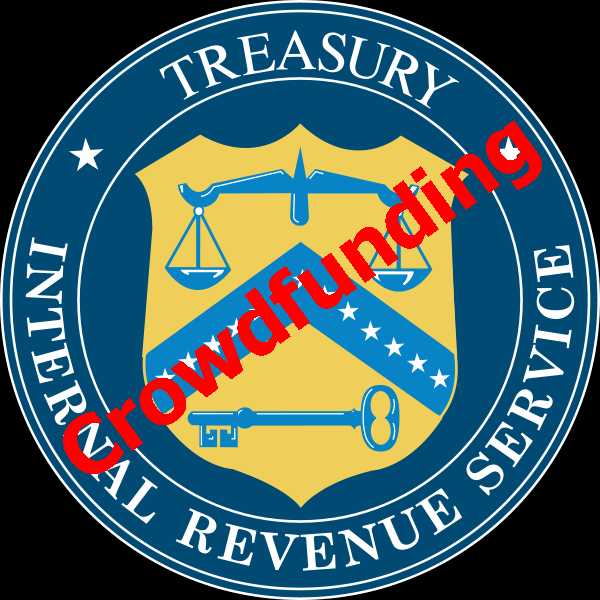Crowdfunding is no longer a fringe method of raising money—it’s gone mainstream. Whether you’re an entrepreneur pre-selling a product, an artist funding a passion project, or a startup raising capital, crowdfunding platforms like Kickstarter, GoFundMe, and StartEngine have opened the door to alternative financing. But here’s the twist: while raising money might be easy, navigating the tax implications is anything but.
Related Post: Popular Crowdfunding Platforms
Let’s break down how different types of crowdfunding campaigns are taxed and what you can do to stay out of hot water with the IRS.
Understanding the Three Crowdfunding Models
At the most basic level, there are three major types of crowdfunding campaigns—and each has its own tax treatment:
1. Donation-Based Crowdfunding
Think of platforms like GoFundMe. People contribute to help you cover personal expenses, medical bills, or a creative endeavor, expecting nothing in return.
In many cases, the IRS treats these contributions as nontaxable gifts, not income. However, it’s essential to note that the IRS has a $19,000 annual gift exclusion per donor (as of 2025), and exceeding this amount may trigger gift tax for the giver, not the recipient.
Still, if you offer any reward in exchange—even a thank-you mug—you might shift into a taxable scenario.
2. Reward-Based Crowdfunding
This is the Kickstarter and Indiegogo model. Backers contribute money and, in exchange, receive something tangible—like a product, service, or early access.
Here’s the catch: the IRS considers these contributions “business income.” That means it’s subject to federal income tax, and possibly self-employment tax, state sales tax, excise tax, or business and occupation tax—depending on where you live or operate.
The situation becomes even more complex if the reward is difficult to value, such as naming rights to a product. Valuation challenges don’t eliminate the tax burden—they just complicate how you report and justify it.
Related Post: Crowdfunding: Design Rewards
3. Equity-Based Crowdfunding
This model, featured on platforms like Wefunder or StartEngine, allows backers to invest in your business in exchange for ownership shares.
In most cases, the funds received are treated as paid-in capital, not income. That means no income tax is due on the money raised. However, issuing equity triggers compliance obligations, such as securities filings and capital reporting on your financials.
Related Post: How To Bring on Investors Without Running Afoul of SEC Laws
Don’t Forget About Timing and Cash Flow
One big mistake many campaign creators make is not aligning income and expenses in the same tax year. For example, let’s say your Kickstarter campaign raises $100,000 in December 2024, but you don’t fulfill rewards until mid-2025. The IRS may expect you to pay income tax on that $100,000 for tax year 2024—before you’ve even built or shipped your product.
Unless you’re using accrual accounting, this mismatch can put you in a painful cash flow bind. Planning ahead with a tax professional is crucial to avoid being surprised by a tax bill that arrives long before your product does.
Best Practices to Reduce Your Tax Burden
- Track All Campaign-Related Expenses: This includes marketing, manufacturing, platform fees, shipping costs, and more. Good records can significantly lower your taxable income.
- Consider Forming a Business Entity: Operating under an LLC or S Corp can open the door to more tax planning strategies, including income deferral and expense allocation.
- Use a CPA Familiar With Crowdfunding: Not all accountants are experienced in this niche. Look for someone who understands how to classify different types of income and guide you through potential state-level taxes.
- Consider Sales Tax Obligations: Even though crowdfunding doesn’t feel like traditional commerce, if you’re giving rewards in return, many states see it as a taxable sale. Tools like TaxJar or Avalara can help automate your state sales tax collection if you’re shipping rewards nationwide.
Final Thoughts
Crowdfunding offers a powerful way to fund your dream, but it doesn’t exempt you from taxes. In fact, many creators are shocked when they realize how much of their raised funds go to taxes, platform fees, and fulfillment costs. If you’re not careful, a successful campaign can turn into a financial headache.
So before you launch your next crowdfunding project, take time to understand how taxes apply to your situation. A little planning upfront can save you a mountain of stress later.
How will income taxes affect your crowdfunding campaign—and what steps can you take today to be better prepared?
Related Free Course: Crowdfunding












